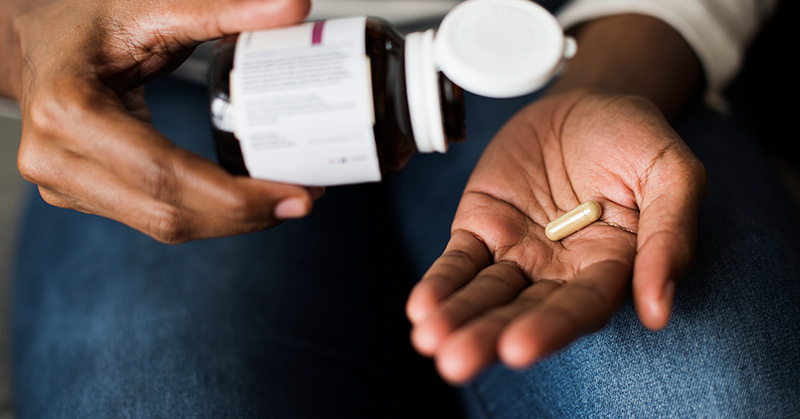Over ten percent of the U.S. population has Diabetes, which means that there are millions of people across the country who have to rely on insulin shots to keep their blood sugar under control [1].
Taking an insulin shot can be painful, is often inconvenient, and can result in visible scars that may never heal. Despite the need for a better solution, medical researchers have not been able to come up with a suitable replacement for insulin injections- until now.
The Insulin Pill
The Israel-based company, Oramed Pharmaceuticals Inc., has developed the first oral insulin capsule to treat diabetes without the need for needles, called ORMD-0801 [2]. The pill has officially gone through the second round of testing proving its safety and efficacy, putting it one step closer to commercial availability [2,3].
There have been many previous attempts by large corporations to create a similar pill, but none have been successful despite spending millions of dollars on research and development. This new pill aims to treat both type 1 and type 2 diabetes and could have a life-changing impact on millions of people worldwide who suffer from the condition [3,4].
The company recently completed a double-blind, placebo-controlled randomized test, and the results were incredibly promising. They released a statement describing their results:
“Treatment with ORMD-0801 at all doses demonstrated an excellent safety profile, with no serious drug-related adverse events and no increased frequency of hypoglycemic episodes or weight gain compared to placebo,” [2].
Oramed’s Chief Executive Officer, Nadav Kidron, believes that these results demonstrate the pill’s potential to have a beneficial impact on the way diabetes is treated around the world.
The Problem with a Pill
The reason it has taken so long to develop an insulin pill is because since insulin is a protein, it gets broken down by the body when ingested. To combat this problem, Oramed developed a novel Protein Oral Delivery technology, which lead to the creation of the capsule. The technology is based on thirty years of research by scientists at Jerusalem’s Hadassah Medical Center [2,3].
The capsule has enteric coating and special protection to keep the insulin from being broken down in the GI tract, and uses special absorption enhancers to allow it to pass through the intestinal wall and into the liver. In this way, it mimics the path of natural insulin by heading to the liver first [3].
A Cost-Effective Solution
One of the most significant benefits of this new technology is that it will drastically reduce the cost of insulin for people with diabetes.
Currently, the annual cost of diabetes in America is 327 billion dollars. People with diagnosed diabetes incur nearly 17 thousand dollars worth of medical costs annually, approximately 2.3 times that of someone without the condition [5].
More than thirty percent of these costs come from spending on insulin, and the Health Care Cost Institute reported that between 2012 and 2016, the average cost of insulin per person per year increased by nearly three thousand dollars [6].
This increase in cost has caused many people with diabetes to ration their insulin, instead of taking the full amount prescribed by their doctor. This can have serious consequences, and there have been reports of deaths caused by insulin rationing, especially by young adults who are no longer on their parents’ health plans [7].
A 2018 study published in JAMA International Medicine found that one in four patients surveyed reported rationing their insulin because of cost within the previous twelve months [7].
Kidron believes that their pill will help solve this problem, stating that the cost of the pill be more affordable when compared to the cost of injections [3].
A Promising Future
Principal investigator of the phase 2 trial, Joel M. Neutel, MD, is very encouraged by the results so far.
“The statistically significant efficacy data,” says Neutel, “coupled with a clean safety profile characterized by no reported weight gain, no increase in serious drug-related adverse events, and no hypoglycemia, further support its clinical potential.” [3]
The team is planning a phase 3 trial, which they will be discussing with the FDA. Their Chinese partner, HTIT, will also begin phase 3 trials and may become the first to offer oral insulin commercially [3].
This new innovation has been a significant breakthrough in the medical community, and has the potential to improve the lives of millions of people worldwide. As long as the phase 3 trials go well, people suffering from diabetes will hopefully be able to purchase this new capsule very soon.
You can see both the completed and ongoing trials from Oromed at Clinicaltrials.gov.
- https://www.diabetesresearch.org/diabetes-statistics
- https://unitedwithisrael.org/israelis-invent-first-pill-to-treat-diabetes-without-insulin-shots/
- https://www.forbes.com/sites/carrierubinstein/2020/02/27/diabetic-patients-get-ready-an-oral-insulin-capsule-that-may-soon-be-on-the-market/#6e554d4d3704
- https://www.biospace.com/article/releases/oramed-reports-positive-results-in-the-final-cohort-of-its-phase-2b-oral-insulin-trial/
- https://www.diabetes.org/resources/statistics/cost-diabetes
- https://healthcostinstitute.org/diabetes-and-insulin/spending-on-individuals-with-type-1-diabetes-and-the-role-of-rapidly-increasing-insulin-prices
- https://www.ajmc.com/journals/evidence-based-diabetes-management/2019/september-2019/gathering-evidence-on-insulin-rationing-answers-and-future-questions

